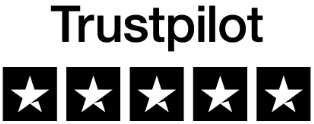
Wawwa Ohrt
YOU DON'T NEED A TASTE OF BLOOD IN YOUR MOUTH TO GET STRONG TRAINING RESULTS
Wawwa was a fast-paced athlete, but injuries made her change course.
Anna's approach has taught her that she doesn't need to train to exhaustion to get a strong body.
I've always done a lot of contact sports and strength training at the gym, but one day I came across Anna and I was drawn to her method and realised that she really knows what she's talking about. I bought access to A Strong Cause and trained every day under Corona.
I thought it was marvellous and have continued ever since.
I used to do contact sports for 10 years with high tempo and speed, which I thought was great at the time. However, I ignored some physical signals because I thought it was so much fun. For example, we trained late at night and I was always completely exhausted afterwards. When I had an ankle injury and had stopped that type of sport, I was looking for something else to train. It was a huge loss for me because contact sport was my identity outside of being a mum. And I had a hard time finding a form of training that suited me. I looked for quite a long time for something that could give me the same thing, i.e. the taste of blood in my mouth. And then I missed my team.
Anna's training gives me something completely different. Something I didn't realise I had been missing. Namely, strength in a different way and at a different pace. It was quite surprising how quickly I got strong, and I have been amazed that the effort was small compared to the great results I achieved.
Anna has taught me that if something isn't working, take a step back and do some of the previous exercises in the programme you're following. And it works really well for me to hear her calm voice explaining everything very simply. It's like it's just the two of us when I train to her videos.
I LEARNT TO LOVE THE CALM PACE
It's kind of funny that I've been doing fast-paced sports with others all my life, but suddenly I was alone on my living room floor and feeling great. It really was a diametric opposite to my previous life. But it was good for me, both mentally and physically. Slowly I built up my ankle so that after a year I could play badminton. I had generally been reluctant to get involved in anything that required the use of my ankle/foot. After two years, I no longer missed the taste of blood in my mouth. The cool thing was realising that I had exercised, even though I had only done it for 20 minutes.
The most important thing for me is to roll out the mat every other day. Even if I just have to lie down and roll around on the floor. Also because I basically know that my day gets much better when I exercise and that my body gets stronger at the same time.
I sleep better, I'm in a better mood, small problems don't get blown up into something bigger. But if I lose the training for a period of time, then more chaos arises around me, I sleep worse, I drink one glass of wine too many, I get annoyed about small things.
I FOLLOWED THE METHOD AND IT WORKED
My biggest aha-experience has been that the pace doesn't have to be SO fast. Anna has shown me that this is not the way to get where you want to go. The only way I reach my goals is through small, but impactful and persistent efforts.
I think it's been a process of recognising, learning to trust that it was good enough, I constantly felt I had to do more. I forced myself to submit to Anna and do as she said, otherwise I couldn't compare it to anything. I was quite trusting of authority and quickly got confirmation that the method worked. And I experienced a fundamental reconnection with my own body. I was mentally involved and I could feel everything: bones, body, nerves.
Two years ago, I can only remember the feeling of 'you'll never be able to do 16kg getups or a snatch. But yes! Because I learnt how to do them, I think that ANYTHING is possible. I was very keen at first, but it wasn't until the second year that I started gaining weight. When I got bored with 12kg, I tried 16kg and realised that I could do it, just with fewer repetitions. In order for my ankle to keep up, I need to increase the weight gradually so that I'm also mentally confident, so I know I can handle the technique. But in general, my ankle complains far less when I exercise than when I don't.
Wawwa Ohrt, 52, three children and three grandchildren, married, graphic designer.

